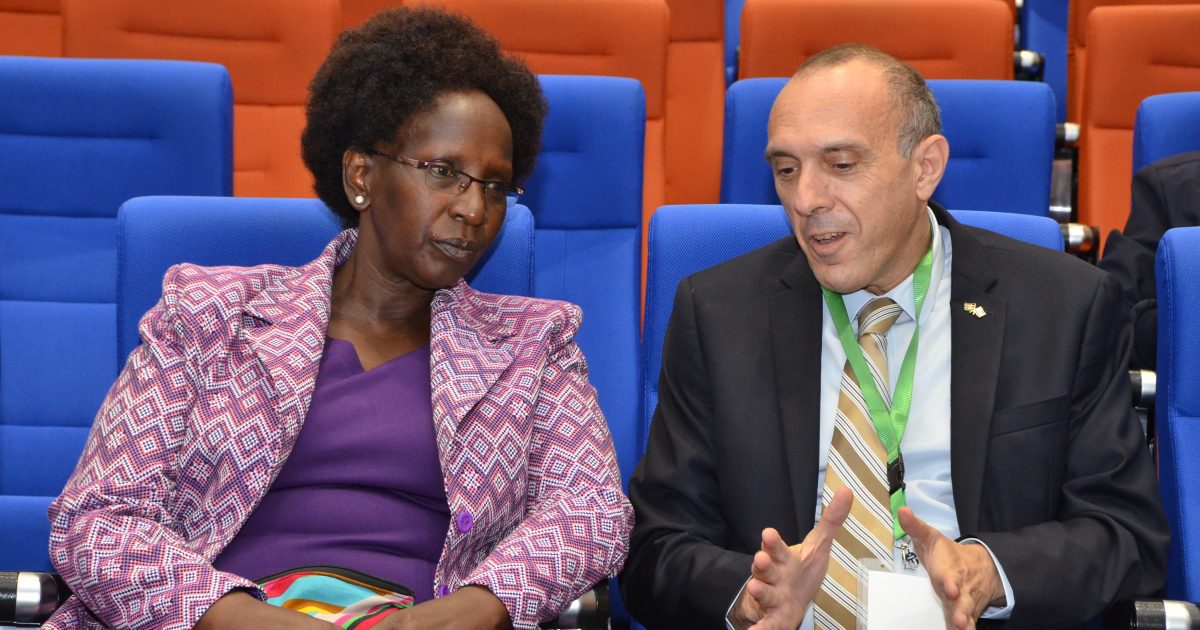
The Government will establish six agro-processing hubs within each economic bloc across the country.
The Agriculture, Livestock, Fisheries and Cooperatives Cabinet Secretary (CS), Peter Munya said the government together with the private sector will establish the agro-processing units as part of enhancing the country’s agricultural competitiveness.
Munya reiterated the Government’s commitment to working with all stakeholders, including county governments, development partners and the private sector to support the design and implementation of transformative agribusiness initiatives across the country.
He made the remarks in a speech read on his behalf by the Chief Administrative Secretary (CAS) in the Ministry, Mrs. Linah Jebii Kilimo, during the launch of the first Agricultural Industry Network (AIN) forum at Kenyatta International Convention Centre, Nairobi on Tuesday.
“We believe that Kenya cannot achieve sustained economic growth without a strong and vibrant agribusiness sector. We need to initiate more public-private partnerships to achieve our goals and collaboration with interested private sector players, non-state actors and development partners to move the agenda forward,” said Mr. Munya.
The agro processing units will be developed using a one-stop-shop rapid Public Private Partnership (PPP) process for local and export markets.
The proposed industrial hubs are part of flagship projects highlighted in 10-year Agricultural Sector Transformation and Growth Strategy (ASTGS). The Ministry is expected to form the Agro-Processing Delivery Team (APDT) to spearhead the establishment of the industrial parks.
The APDT will identify Kenya’s highest potential projects and implement six agro processing hubs – one in each economic bloc –with combined capital value of up to Sh.100 billion that is largely financed by the private sector.
In order to enhance food nutrition and security, the government will in the medium term unlock 50 large-scale private farms with 150,000 acres under sustainable irrigation from existing infrastructure with competitive bidding, and provide infrastructure such as power and roads.
The AIN chairman, Edward Mudibo said the absence of a comprehensive agriculture policy is frustrating efforts by stakeholders to fast track regulations of the various subsectors.
“Current legislations and regulations lack a strong base due to the absence of the general policy seven years after agriculture functions were devolved. We still have hope that the Ministry will push the completion of the document which is currently in draft form to the final level,” he said.
Munya said the government will work together with business member organizations in the transformation of the agricultural sector, especially with regard to ongoing reforms in order to enhance the efficiency, competitiveness and effectiveness of the sector and its allied value addition industries.
The Counties Agriculture caucus Chairperson, Mary Nzomo said the devolved governments are increasing budgetary allocation to the Agriculture sector to enhance farm output, food security and nutrition in the country.
“A number of counties are allocating more than 10 per cent to the Agriculture sector, for example, Kakamega and Makueni, while others are between five and 10 per cent. This demonstrates the importance of the sector in the development of the rural economies,” said Mrs. Nzomo.
By Wangari Ndirangu



